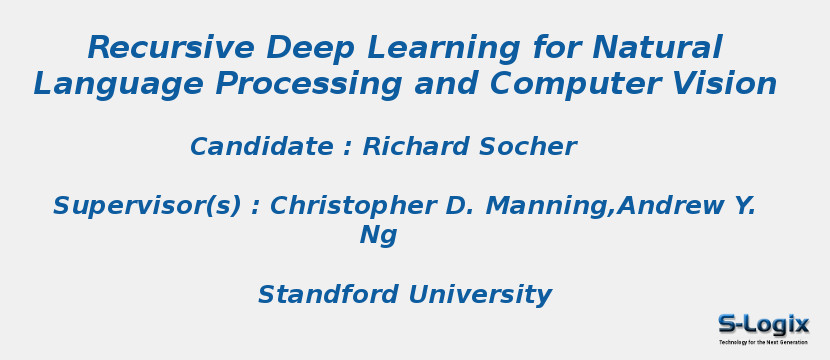Research Area: Machine Learning
As the amount of unstructured text data that humanity produces overall and on the Internet grows, so does the need to intelligently process it and extract different types of knowledge from it. My research goal in this thesis is to develop learning models that can automatically induce representations of human language, in particular its structure and meaning in order to solve multiple higher level language tasks. There has been great progress in delivering technologies in natural language processing such as extracting information, sentiment analysis or grammatical analysis. However, solutions are often based on different machine learning models. My goal is the development of general and scalable algorithms that can jointly solve such tasks and learn the necessary intermediate representations of the linguistic units involved. Furthermore, most standard approaches make strong simplifying language assumptions and require well designed feature representations. The models in this thesis address these two shortcomings. They provide effective and general representations for sentences without assuming word order independence. Furthermore, they provide state of the art performance with no, or few manually designed features. The new model family introduced in this thesis is summarized under the term Recursive Deep Learning. The models in this family are variations and extensions of unsupervised and supervised recursive neural networks which generalize deep and feature learning ideas to hierarchical structures. The RNN models of this thesis obtain state of the art performance on paraphrase detection, sentiment analysis, relation classification, parsing, image-sentence mapping and knowledge base completion, among other tasks.
Name of the Researcher: Richard Socher
Name of the Supervisor(s): Christopher D. Manning,Andrew Y. Ng
Year of Completion: 2014
University: STANFORD UNIVERSITY
Thesis Link: Home Page Url
